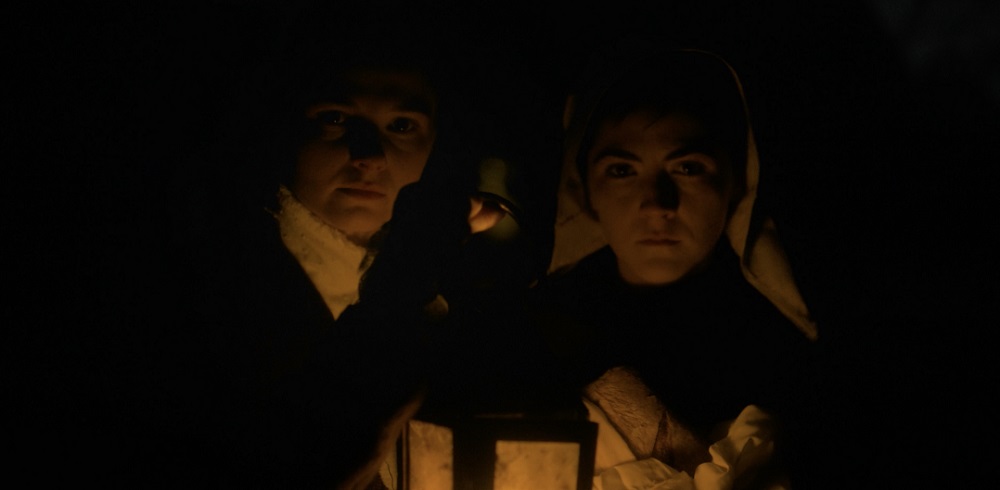Fantasia Review: The Last Thing Mary Saw
A nightmare in nineteenth century New York
By Richard Whittaker, 5:30PM, Tue. Aug. 17, 2021
That there was little pure about American's Puritan roots is a narrative strain that has grown through American historical drama. The Last Thing Mary Saw is the latest story about the bitter fruit borne by that legacy.
Unlike most historical queer drama, especially those that fuse religiosity and the supernatural, there's no act of discovery. This dour and devout community in rural New York, in the grey-clouded days of 1843, already knows of the love between farmer's daughter Mary (Stefanie Scott, Insidious: The Last Key) and her family's maid, Eleanor (Isabelle Fuhrman, Orphan). The era of witchburning is long gone, so subtler tortures have taken their place for those that let the Devil guide their hands. The change that has occurred is that the new pains are self-inflicted acts of contrition. "Knees and prayers," snarks Mary's grandmother, the matriarch of the family (You Were Never Really Here's Judith Roberts), but her autocratic rule is shattered before the story begins. The Last Thing Mary Saw is a testimony before an impromptu court, with Mary, eyes bound but blood still trickling down her faces, testifying on the matriarch's murder. Or, as the story unveils itself in flashbacks, maybe she is confessing.
The Last Thing Mary Saw is, in many ways, a standard addition to the ever-growing genre of gloomy tales of sexual repression and religious oppression: the days are grey and washed out, the nights illuminated by golden points of light from candles and lantern against the darkness, the rooms and clothes all shades of course linen white or pitch-sealed black, the dialogue muttered in church mumbles and the secretive whispers of cursed lovers. What keeps it intriguing are the garnishes and hints of greater evils and illicit pleasures - a book, a twitching finger, a mysterious visitor with a half-covered face (Rory Culkin). Writer/director Edoardo Vitaletti refuses to deliver definitive answers, but instead of that being frustrating it's intriguing and breath-holdingly hypnotic: much like Keegan DeWitt's score, which merges with the sound design to make the spartan timbered home into a living, wheezing place of secrets best buried.
But most ominous of all is the matriarch, a vulture in lace, a rarely-seen presence whose power is hidden behind frailty. She is the intersection of faith and malevolence, exquisitely depicted by Roberts who sets a merciless tone that persists even after her demise.
The Last Thing Mary Saw screens as part of the Fantasia International Film Festival running Aug. 5-25. Info and virtual passes at fantasiafestival.com.
A note to readers: Bold and uncensored, The Austin Chronicle has been Austin’s independent news source for over 40 years, expressing the community’s political and environmental concerns and supporting its active cultural scene. Now more than ever, we need your support to continue supplying Austin with independent, free press. If real news is important to you, please consider making a donation of $5, $10 or whatever you can afford, to help keep our journalism on stands.
April 20, 2024
April 19, 2024
Fantasia Film Festival, Fantasia 2021, The Last Thing Mary Saw









